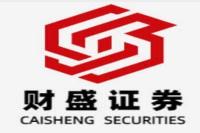Decoding the Hong Kong Stock Market: A Deep Dive into HSI and Hang Seng Tech Index Fluctuations
Meta Description: Unlock the secrets of the Hong Kong stock market! This in-depth analysis explores the Hang Seng Index (HSI) and Hang Seng Tech Index (HSTI) volatility, offering expert insights, real-world examples, and actionable strategies for investors. Learn about market drivers, risk management, and potential opportunities. #HongKongStockMarket #HSI #HangSengTechIndex #StockMarketAnalysis #InvestmentStrategies
Dive headfirst into the dynamic world of Hong Kong's stock market! Picture this: you're glued to your screen, watching the numbers flicker – a rollercoaster of gains and losses, a thrilling drama unfolding before your very eyes. That's the Hong Kong stock market, a pulsating heart of Asian finance, where fortunes are made and lost in the blink of an eye. This isn't just another dry market report; it's a journey into the very soul of HSI and HSTI movements, a narrative woven with real-world examples, seasoned insights, and practical strategies to help you navigate the complexities of this exciting yet often unpredictable landscape. We’ll dissect recent market swings, such as the Hang Seng Index’s (HSI) temporary surge exceeding 2% before a reversal, shedding light on the underlying forces at play. Prepare to arm yourself with the knowledge needed to make informed decisions and potentially capitalize on emerging opportunities within this vibrant market. We'll explore the interwoven factors shaping these indices, from global macroeconomic trends and geopolitical events to sector-specific developments and investor sentiment. This isn’t about getting rich quick – instead, it’s about gaining a deeper, more nuanced understanding of the Hong Kong stock market and building a robust investment strategy based on sound principles and careful analysis. So, buckle up, because we’re about to embark on a thrilling ride – a journey into the heart of Hong Kong's financial dynamism!
Hang Seng Index (HSI) and Hang Seng Tech Index (HSTI): Understanding the Key Players
The Hang Seng Index (HSI) and the Hang Seng Tech Index (HSTI) are two of the most prominent benchmarks for the Hong Kong stock market. The HSI, a long-standing barometer, represents the overall performance of the largest companies listed on the Hong Kong Stock Exchange (HKEX). It encompasses a diversified range of sectors, from finance and real estate to consumer goods and utilities. Think of it as the heavyweight champion, reflecting the broader economic health and investor confidence in Hong Kong.
The HSTI, on the other hand, is a more recent addition, focusing specifically on the technology sector. This index tracks the performance of leading tech companies, mirroring the global tech boom and its impact on Hong Kong's economy. It’s the agile contender, often exhibiting greater volatility than the HSI due to the inherent risk and rapid growth potential characteristic of the tech sector. Understanding the nuances of both indices is crucial for crafting a well-diversified investment portfolio.
Market Drivers: Unveiling the Forces Behind the Fluctuations
Several factors contribute to the ebb and flow of the HSI and HSTI. Let's break down some key drivers:
-
Global Macroeconomic Conditions: Global economic growth, interest rate changes, and inflation rates significantly influence investor sentiment and capital flows. A global recession, for instance, can trigger a sell-off in both indices, as investors seek safer havens. Conversely, robust global growth often fuels bullish sentiment.
-
Geopolitical Events: Geopolitical tensions, trade wars, and political instability can create uncertainty and market volatility. Events impacting mainland China, Hong Kong's largest trading partner, often have a direct and immediate impact on both indices.
-
Sector-Specific Developments: Performance within specific sectors significantly influences the indices. For example, strong performance in the financial sector can boost the HSI, while advancements in technology can drive up the HSTI.
-
Investor Sentiment: Market psychology plays a crucial role. Positive news and optimistic forecasts tend to boost investor confidence, leading to price increases. Negative news or pessimistic outlooks can trigger sell-offs and market corrections. It’s a classic case of "fear and greed" driving market behavior.
-
Regulatory Changes: Government policies and regulatory changes, both domestically and internationally, can significantly impact market performance. Changes in tax laws, environmental regulations, or trade policies can all influence investor decisions.
Analyzing Recent Market Swings: A Case Study
The recent HSI fluctuation, where it briefly surged over 2% before retracting, exemplifies the market's inherent volatility. This could be attributed to a confluence of factors. Perhaps positive economic data triggered an initial rally, only to be countered by concerns about rising interest rates or geopolitical uncertainties. Analyzing such instances requires a deep dive into news headlines, financial reports, and expert opinions.
Risk Management: Protecting Your Investments
Investing in the Hong Kong stock market presents both opportunities and risks. Effective risk management is paramount. Here are some key strategies:
-
Diversification: Don't put all your eggs in one basket! Spread your investments across different sectors and asset classes to mitigate risk.
-
Asset Allocation: Determine the optimal balance between high-risk, high-reward investments and lower-risk, more stable options, aligning your portfolio with your risk tolerance and investment goals.
-
Stop-Loss Orders: These orders automatically sell your shares when the price drops to a predetermined level, limiting potential losses.
-
Regular Rebalancing: Periodically adjust your portfolio to maintain your desired asset allocation, correcting for any significant shifts in market values.
Navigating the Future: Opportunities and Challenges
The Hong Kong stock market offers considerable potential, particularly in burgeoning sectors like technology and fintech. However, headwinds remain. Understanding these dynamics is crucial for long-term success. Ongoing geopolitical uncertainties and global economic fluctuations pose considerable challenges, highlighting the importance of constant market monitoring and adaptability.
Frequently Asked Questions (FAQs)
Q1: Is investing in the HSI or HSTI risky?
A1: All stock market investments carry some level of risk. The HSTI, given its focus on the tech sector, tends to be more volatile than the broader HSI. Thorough research and diversification are key to managing risk effectively.
Q2: How can I start investing in the Hong Kong stock market?
A2: You’ll need a brokerage account with access to the HKEX. Many international brokers offer this service. Research thoroughly and choose a reputable broker.
Q3: What are the transaction costs involved?
A3: Transaction costs include brokerage fees, exchange fees, and potentially other charges depending on your broker. These fees vary, so compare options carefully.
Q4: What are the tax implications of investing in Hong Kong stocks?
A4: Tax implications depend on your residency and the specific investment structure. Consult a tax professional for personalized advice.
Q5: Are there any ETFs that track the HSI and HSTI?
A5: Yes, Exchange-Traded Funds (ETFs) tracking both indices are available, offering a convenient and diversified way to gain exposure.
Q6: How can I stay updated on market movements?
A6: Follow reputable financial news sources, utilize online charting tools, and consider subscribing to market analysis services.
Conclusion: Charting Your Course to Success
Investing in the Hong Kong stock market can be a rewarding but challenging endeavor. By understanding the key players, market drivers, and potential risks, you can improve your chances of success. Remember, thorough research, prudent risk management, and a long-term perspective are essential ingredients for navigating this dynamic and exciting market. Don't just react to the market; actively participate with knowledge and a clear strategy. The future of your investments is in your hands – seize the opportunity and make it count!



